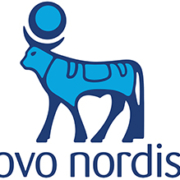Biopharma invested just $6.5B in vaccine development in last decade: report
Published: Jan 29, 2024
By Tristan Manalac
BioSpace
The biopharma industry has been largely underfunding vaccine development despite its strong potential to prevent diseases and reduce hospitalizations and deaths, according to a report published Thursday by industry advocacy group Biotechnology Innovation Organization.
Over the last decade, the report found that biopharma has allotted only $6.5 billion in venture capital investments for infectious disease vaccine programs, a sum that represents just 3.4% of the total venture capital raised during the period. By comparison, oncology programs received a total of $72.6 billion over the last 10 years, an amount 12 times higher than the industry’s investment in vaccines.
Public companies working on vaccines for infectious diseases have fared slightly better, raising $8.7 billion for their programs, though the bulk of this—$6 billion—was raised during the COVID-19 pandemic.
“We’ve seen incredible progress recently in areas like RSV and HPV, but unless there is more dedicated, persistent investment toward new vaccines, we’ll fall behind,” David Thomas, BIO’s senior vice president of industry research and analysis, said in a statement.
BIO CEO Rachel King added that “to ensure these scientific innovations continue to advance, we must make investing in vaccine development a greater priority.”
A result of biopharma’s sparse investment into vaccine development is a pipeline that “has breadth, but lacks the depth likely required for successful product development for many important pathogens,” according to the BIO report.
Overall, the industry has 249 clinical-stage vaccine programs—28% of which, or 69 programs in total—are for COVID-19. Many companies, including Pfizer, Novavax and Moderna, have already experienced dwindling coronavirus vaccination rates and have channeled investments into other programs.
The remaining clinical-stage vaccine programs are divided among 46 different pathogens, many of which are highly important for public health but only have one vaccine being trialed, including gonorrhea, chlamydia and Lyme disease.
The BIO report also points out that “there are many infections without a single vaccine program at the clinical development stage,” while flagging that drug-resistant bacterial pathogens are currently severely under-represented in the industry’s current pipeline.
To help improve the current pipeline for vaccines, BIO recommends capitalizing on platform technologies which it contends can not only accelerate the development of novel therapies with better safety and efficacy but can also draw more support from investors. The industry will also benefit from efforts to expand vaccine access as well as to rebuild the public’s confidence in vaccination worldwide, according to the report.
Source: BioSpace









